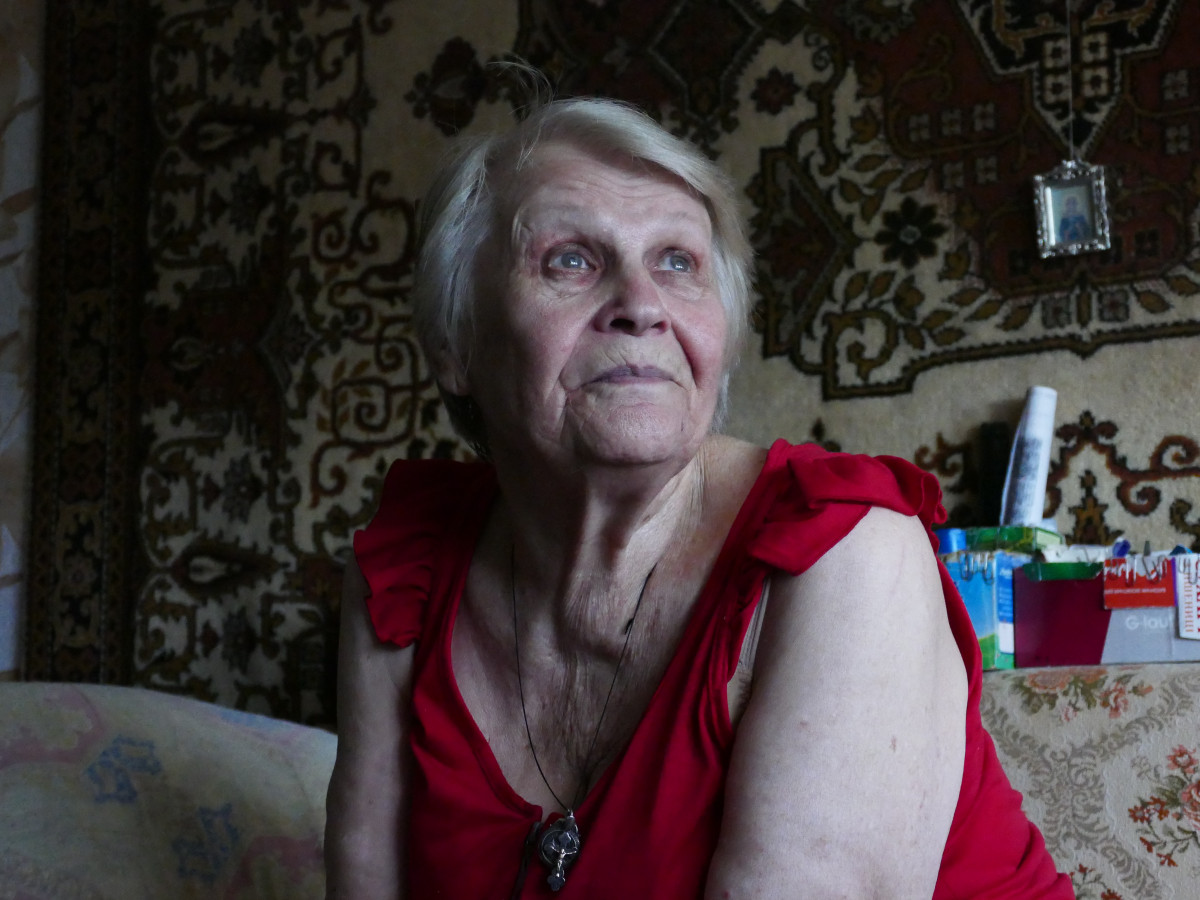Older people isolated by conflict in Donbas
Published: Oct 1, 2021 Reading time: 3 minutes Share: Share an articleLiving in an active armed conflict zone in eastern Ukraine, elderly people and people with physical disabilities are limited in their mobility and opportunities to seek shelter and safety. Many people have fled the areas affected by fighting in search of security, healthcare, employment and social services. Many who stayed face emotional and physical difficulties and live in isolation. An estimated 30% of people (more than a million) affected by the conflict since 2014 are older people. Worsening security and limited access to basic services means their situation continues to deteriorate.

“When there is heavy shelling and the sound of it shakes the house, I sit on the bed hugging the cat, trying to calm it down as it’s so scared and wants to run away,” says 85-year-old Lidiia in Marinka, eastern Ukraine.
Lidiia’s house is directly on the frontline and has been damaged by shelling; a sign right in front of the garden warns about snipers and landmines. Since her husband died, Lidiia lives alone. She has no children or relatives to support her, and is the only person left on her street. Everyone else has moved away from the conflict, but Lidiia, along with many other older people living in frontline settlements, can’t leave because of her age, health and financial situation.
“I’ve lived in this house my whole life,” says Lidiia. “I don’t want to leave it even if I had the chance.”
Lidiia has no regular access to water, food or the medications she desperately needs. Without support from humanitarian organizations, especially in the harsh Ukrainian winter, it is very difficult to survive on her small pension. People in Need delivered coal to heat her house during the winter thanks to generous funding from the European Union, and volunteers from HelpAge International regularly visit to help with buying food, medications, hygiene items and other necessities.
“I’m so happy when the volunteers come to visit,” says Lidiia. “I’m glad I can socialize and talk to them because I live alone, with only my cat.”
After more than seven years of hostilities, conflict-affected older people are in dire need of support, including healthcare and psychosocial assistance. Elderly people with disabilities are disproportionately affected by physical barriers such as lack of transport, as well as institutional barriers. They are at higher risk of poverty and have greater healthcare needs.
“Today I had only bread and tea for my meals,” says Vera, 75. “My pension is very small, and I can’t afford to buy enough food and medications.”
Vera lost her sight when she was exposed to the stress and trauma of shelling in Chasiv Yar. She lives together with her son, who has a disability and needs constant medical care.
“Once during shelling, I ran outside to see what was happening,” Vera says. “The following day, I went outside and realized that I couldn’t see.”
Since that day, Vera is completely blind and is not able to take care of herself and her son.
In this difficult situation, Vera considered suicide. But with support from her neighbours as well as a social worker, she found the strength to get rid of those thoughts and move forward. Doctors say she could regain some sight with surgery, but unfortunately, Vera doesn’t have the financial resources for the operation.
People in Need supported Vera with cash assistance to cover her basic needs with generous support from USAID's Bureau for Humanitarian Assistance.



